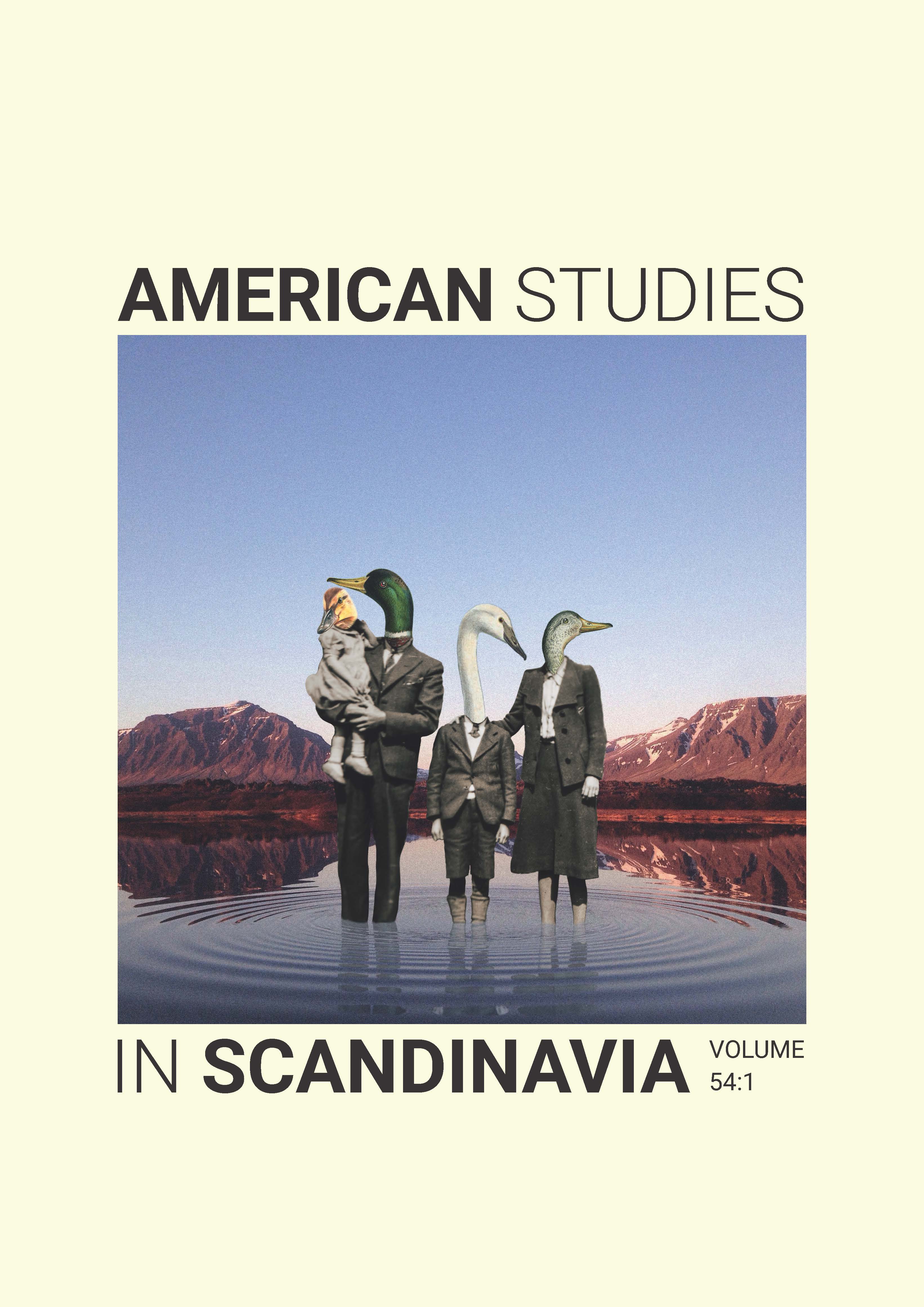She Bloomed in the Dark: Shadow Feminism and Queer Failure in Paula Gunn Allen’s The Woman Who Owned the Shadows
DOI:
https://doi.org/10.22439/asca.v54i1.6598Keywords:
Queer failure, Shadow Feminism, Paula Gunn Allen, Trauma, Two-SpiritAbstract
This article analyzes Paula Gunn Allen’s 1983 novel The Woman Who Owned the Shadows deploying Jack Halberstam’s notion of queer failure, a subversive phenomenon that involves embracing negative affects, refusing success narratives, and negating selfhood. Refusing stereotypical feminine positionality in a masculinist universe in favor of a shadowy, female-centered spirit community, the main character, Ephanie, rejects disciplinary gender norms and fails to perform a cis-hetero feminine identity. Recasting Allen’s conception of the medicine-dyke as a Halberstamian shadow feminist, the article analyzes how the novel employs queer failure as a critique of settler colonial oppression and violence, from the main character as failed ciswoman to the novel’s narrative as a failure of form and convention. Through a fragmented narrative style that never truly resolves, the novel lacks stability and familiar structure, challenging the telos of stabile identity formation and the logic of success. Like its main character, the novel is subversive, a queer unstory that fails to adhere to literary conventions, emphasizing unbeing, undoing, and murky kinds of feminist resistance.
References
Allen, Paula Gunn. The Woman Who Owned the Shadows. 1983. Aunt Lute Books, 1994.
---. The Sacred Hoop: Recovering the Feminine in American Indian Traditions. Beacon Press,1986.
Arvin, Maile, Eve Tuck and Angie Morrill. "Decolonizing Feminism: Challenging Connections between Settler Colonialism and Heteropatriarchy." Feminist Formations, vol. 25, no. 1, 2013, pp. 8-34. https://doi.org/10.1353/ff.2013.0006
Bredin, Renae. "'Becoming Minor': Reading The Woman Who Owned the Shadows." Studies in American Indian Literatures, vol. 6 no. 4, 1994, pp. 36-50.
Burford, Arianne. "'Her Mouth is Medicine': Beth Brant and Paula Gunn Allen's Decolonizing Queer Erotics." Journal of Lesbian Studies, vol. 17 no. 2, 2013, pp. 167-179. https://doi.org/10.1080/10894160.2012.691845
Byrd, Jodi A. "What's Normative Got to Do with It? Toward Indigenous Queer Relationality."Social Text, vol. 38, no. 4, pp. 105-23, doi:10.1215/01642472-8680466.
Connell, R. W. Gender and Power: Society, the Person and Sexual Politics.Stanford University Press, 1987.
Cook, Barbara. "Ephanie's Vision Quest: Blending Native American and Feminist Elements."Reclaiming Native American Cultures: Proceedings of the Native American Symposium,edited by Annette Trefzer and Robin L. Murray. Southeastern Oklahoma State University, 1998, pp. 20-27.
Cox, Jay. "Dangerous Definitions: Female Tricksters in Contemporary Native American Literature." Wicazo Sa Review, vol. 5 no. 2, 1989, pp. 17-21. https://doi.org/10.2307/1409399
Driskill, Qwo-Li. "Stolen From Our Bodies: First Nations Two-Spirits/Queers and the Journey to a Sovereign Erotic." SAIL, vol. 16 no. 2, 2004, p. 50-64. doi:10.1353/ail.2004.0020.
Halberstam, J. The Queer Art of Failure. Duke University Press, 2011. https://doi.org/10.2307/j.ctv11sn283
Hanson, Elizabeth I. Forever There: Race and Gender in Contemporary Native American Fiction. Peter Lang, 1989.
Holford, Vanessa. "Re Membering Ephanie: A Woman's Re-Creation of Self in Paula Gunn Allen's The Woman Who Owned the Shadows." SAIL, vol. 6, no. 1, 1994, pp. 99-113.
Hynes, William J. "Mapping the Characteristics of Mythic Tricksters: A Heuristic Guide."Mythical Trickster Figures: Contours, Contexts, and Criticisms, edited By William J. Hynes and William G. Doty, University of Alabama Press, 1993, pp. 33-45.
Lang, Sabine. "Native American Men-Women, Lesbians, Two-Spirits: Contemporary and Historical Perspectives." Journal of Lesbian Studies, vol. 20, no. 3-4, 2016, pp. 299-323, doi:10.1080/10894160.2016.1148966.
Madsen, Deborah L. (ed.) "Of Time and Trauma: The Possibilities for Narrative in Paula Gunn Allen's The Woman Who Owned the Shadows." Transatlantic Voices: Interpretations of Native North American Literatures, edited by Elvira Pulitano, University of Nebraska Press, 2007, pp. 111-28. https://doi.org/10.2307/j.ctt1djmc5d.10
Morgensen, Scott Lauria. "Theorizing Gender, Sexuality and Settler Colonialism: An Introduction." Settler Colonial Studies, vol. 2, no. 2, 2012, pp. 2-22. https://doi.org/10.1080/2201473X.2012.10648839
Prince-Hughes, Tara. "Contemporary Two-Spirit Identity in the Fiction of Paula Gunn Allen and Beth Brant." SAIL, vol. 10, no. 4, 1998, pp. 9-32, http://www.jstor.org/stable/20739470.
Rifkin, Mark. When Did Indians Become Straight? Kinship, the History of Sexuality, and Native Sovereignty. Oxford University Press, 2011. https://doi.org/10.1093/acprof:oso/9780199755455.001.0001
Roscoe, Will. Changing Ones: Third and Fourth Genders in Native North America. St. Martin's Griffin, 1998.
Ruoff, A. LaVonne Brown. "The Woman Who Owned the Shadows: The Autobiography of Ephanie Atencio by Paula Gunn Allen." SAIL, vol. 7, no. 3, 1983, pp. 65-69.
Shi, Jian. Healing through Traditional Stories and Storytelling in Contemporary Native American Fiction. ProQuest Dissertations and Theses/Lehigh University, 1995.
Silko, Leslie Marmon. Yellow Woman and a Beauty of the Spirit: Essays on Native American Life Today. Simon & Schuster, 1996.
Van Dyke, Annette. "A Tribute to Paula Gunn Allen (1939-2008)." SAIL, vol. 20, no. 4, 2008, pp. 68-75. doi:10.1353/ail.0.0048. https://doi.org/10.1353/ail.0.0048
Veracini, Lorenzo. Settler Colonialism: A Theoretical Overview. Palgrave Macmillan, 2010. https://doi.org/10.1057/9780230299191
Vizenor, Gerald. Crossbloods: Bone Courts, Bingo, and Other Reports. 1976. University of Minnesota Press, 1990.
Williams, Walter L. The Spirit and the Flesh: Sexual Diversity in American Indian Cultures. 1986. Beacon Press, 1992.
Wolfe, Patrick. "Settler Colonialism and the Elimination of the Native." Journal of Genocide Research, vol. 8, no. 4, 2006, pp. 387-409. https://doi.org/10.1080/14623520601056240
Downloads
Published
How to Cite
Issue
Section
License
Copyright (c) 2022 Marianne Kongerslev

This work is licensed under a Creative Commons Attribution-NonCommercial-NoDerivatives 4.0 International License.



